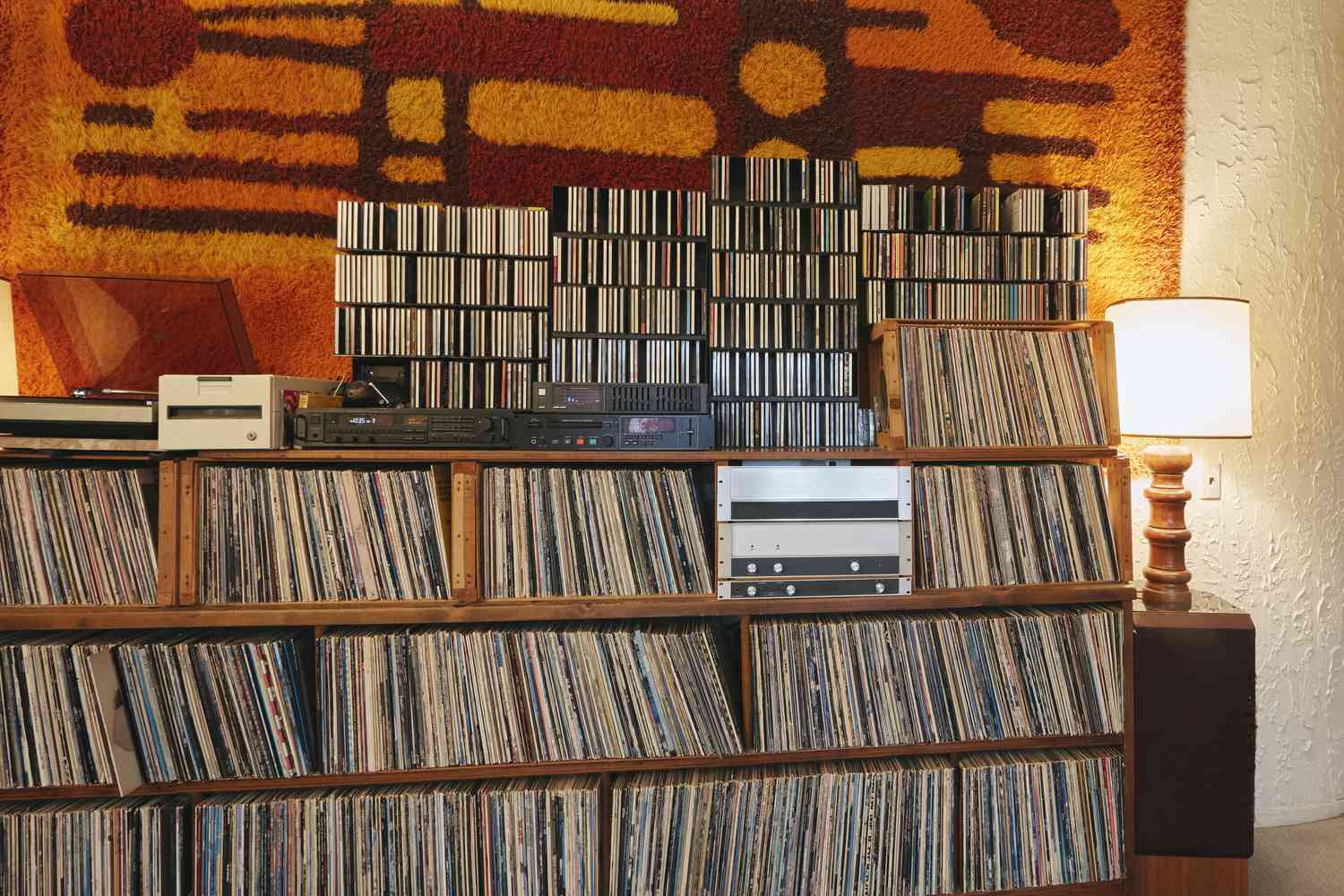

Articles
How To Store Cds Long-Term
Modified: October 24, 2024
Learn how to store CDs long-term with these helpful articles. Preserve your collection and keep your CDs in optimal condition.
(Many of the links in this article redirect to a specific reviewed product. Your purchase of these products through affiliate links helps to generate commission for Storables.com, at no extra cost. Learn more)
Introduction
CDs, short for compact discs, were once the dominant medium for storing and playing music, as well as other digital files. While digital music streaming services have gained popularity in recent years, many music enthusiasts still have a vast collection of CDs that they cherish and want to preserve for the long term. The key to ensuring the longevity of CDs lies in proper storage.
Proper CD storage is crucial to maintain the integrity of the disc and prevent any damage that could potentially affect its playback quality. Factors such as temperature, humidity, and exposure to sunlight can all have a significant impact on the lifespan of CDs. By following a few simple guidelines and adopting good storage practices, you can help prolong the life of your CDs and enjoy them for years to come.
This article will explore the importance of proper CD storage, the factors that can affect CD longevity, and provide some valuable tips on how to store your CDs long-term.
Key Takeaways:
- Proper CD storage is essential for maintaining longevity, playback quality, and data integrity. By choosing the right storage environment, handling CDs with care, and organizing them properly, you can ensure years of uninterrupted enjoyment from your collection.
- Protecting CDs from factors such as sunlight, extreme temperatures, and magnetic fields is crucial for preserving their integrity. Regular cleaning, periodic checks, and proper organization are key to maintaining the longevity and quality of your CD collection.
Read more: How To Store Barley Long Term
Importance of Proper CD Storage
Proper CD storage is essential for several reasons. Firstly, CDs are sensitive to external elements such as temperature, humidity, and exposure to light. Failing to store them in a suitable environment can lead to the deterioration of the CD’s physical and data layers, resulting in data loss or playback issues.
Secondly, CDs are susceptible to scratches and physical damage. Mishandling or improper storage can lead to scratches on the surface of the CD, interfering with the laser reading the data on the disc. This can result in skips, glitches, or even complete failure to read the CD.
Furthermore, CDs are prone to discoloration and fading. If exposed to direct sunlight or extreme temperature fluctuations, the reflective layer of the CD can deteriorate, leading to discoloration and loss of data integrity.
Proper CD storage not only ensures the longevity of the discs themselves but also preserves the quality of the audio or data stored on them. By taking the necessary precautions, you can maintain the original sound quality and prevent degradation over time.
Additionally, proper CD storage allows for easy organization and access to your collection. It reduces the chances of misplacing or losing CDs and makes it convenient for you to find and enjoy your favorite music or files when you want.
In summary, maintaining proper CD storage is crucial for preserving the longevity, playback quality, and data integrity of your CDs. By storing them correctly, you can prevent damage, deterioration, and loss of information, ensuring that your collection remains intact for years to come.
Factors Affecting CD Storage Longevity
Several factors can impact the longevity of CD storage. Understanding these factors will help you take the necessary precautions to ensure the preservation of your CDs.
1. Temperature and Humidity: Extreme temperatures and high humidity levels can significantly affect CDs. Excessive heat can warp the disc, while cold temperatures can cause the layers to separate. High humidity can lead to mold growth and damage the data layer. It is important to store CDs in a cool, dry environment.
2. Sunlight and UV Exposure: Direct exposure to sunlight or strong UV rays can degrade the reflective layer of CDs over time. It is best to keep CDs away from windows or other sources of direct sunlight.
3. Physical Handling: Mishandling CDs can lead to scratches, fingerprints, or smudges on the surface. These can interfere with the laser reading the data, resulting in playback issues. It is important to handle CDs with clean hands and hold them by the edges to avoid touching the playable surface.
4. Chemical Exposure: CDs should be kept away from chemicals such as solvents, cleaning agents, or adhesives. These substances can damage the disc’s surface or cause the layers to delaminate.
5. Magnetic Fields: Magnetic fields can disrupt the data stored on CDs. It is important to keep CDs away from strong magnetic sources, such as speakers or electronic devices.
6. Dust and Dirt: Accumulation of dust and dirt on CDs can affect their playback quality. Regularly clean CDs using a soft, lint-free cloth or an approved CD cleaning solution.
7. Improper Storage: Storing CDs in crowded or unstable positions can put them at risk of falling, getting crushed, or scratching against other objects. It is best to store CDs upright in a secure and stable environment.
By being aware of these factors and taking the necessary precautions, you can significantly extend the lifespan of your CDs and maintain their optimal playback quality and data integrity.
Tips for Storing CDs Long-Term
Proper storage is key to preserving the longevity and quality of your CDs. Here are some helpful tips for storing CDs long-term:
- Choose the Right Storage Environment: Find a cool, dry, and clean space to store your CDs. Avoid areas with extreme temperature fluctuations, high humidity, or direct sunlight.
- Handle CDs with Care: When handling CDs, hold them by the edges to prevent fingerprints and smudges. Avoid touching the playable surface, as it can lead to scratches and affect playback quality.
- Clean CDs Regularly: Dust and dirt can accumulate on CDs, affecting their playback. Use a soft, lint-free cloth to gently wipe the surface or invest in a CD cleaning solution for more thorough cleaning.
- Organize CDs Properly: Maintain an organized system for storing your CDs. Alphabetize them by title, artist, or genre, or use a cataloging software to keep track of your collection.
- Consider Using Sleeves or Jewel Cases: Protect your CDs from scratches and dust by using sleeves or jewel cases. These provide an additional layer of protection when storing CDs in racks or storage containers.
- Protect CDs from Direct Sunlight: Exposure to sunlight or strong UV rays can damage CDs. Keep them away from windows or use curtains or blinds to block out sunlight.
- Store CDs Upright: Storing CDs upright on their edges reduces the risk of warping or scratching. Use CD storage racks or shelves designed to keep CDs in an upright position.
- Avoid Extreme Temperatures and Humidity: Extreme heat or cold can damage CDs. Avoid storing them in attics, garages, or basements where temperature and humidity levels are not controlled.
- Keep CDs Away from Magnetic Fields: Strong magnetic fields can erase or corrupt the data on CDs. Keep them away from speakers, magnets, or electronic devices that generate magnetic fields.
- Check CDs Periodically: Regularly inspect your CDs for any signs of damage or deterioration. Replace any scratched or damaged CDs to prevent playback issues.
By following these tips, you can ensure that your CDs remain in optimum condition for years to come, allowing you to enjoy your music or data without any interruptions.
Choose the Right Storage Environment
The storage environment plays a crucial role in preserving the longevity and quality of your CDs. Here are some key factors to consider when selecting the right storage environment:
- Temperature: CDs are sensitive to temperature fluctuations. High temperatures can cause the disc to warp, while extremely low temperatures can lead to layer separation. It is best to store CDs in a cool environment with a consistent temperature, preferably between 60°F to 70°F (15°C to 21°C).
- Humidity: Excessive moisture in the air can cause CDs to deteriorate. High humidity levels can lead to mold growth, damage the data layer, and promote discoloration. To protect your CDs, aim for a humidity level between 40% to 50%.
- Light Exposure: Direct exposure to sunlight or strong UV rays can degrade the reflective layer of CDs over time. It is important to keep CDs away from windows, or use curtains or blinds to block out sunlight. If possible, consider storing CDs in a dark or low-light environment.
- Stable Environment: Fluctuations in temperature and humidity can damage CDs. Avoid storing CDs in areas prone to frequent temperature changes, such as attics, garages, or basements. Additionally, choose a location with low levels of dust and dirt to minimize the risk of contamination on the CD surface.
When selecting the storage location, consider placing CDs in a dedicated cabinet or shelf away from heat sources, vents, or areas with high foot traffic. This helps maintain a stable environment for your CDs and reduces the risk of accidental damage or mishandling.
If you have a large CD collection, you might consider investing in a specialized CD storage case or container. These storage solutions are designed to protect CDs from dust, light, and physical damage. Look for storage options with adjustable shelves or compartments to accommodate your growing collection.
By choosing the right storage environment, you can create an optimal condition for your CDs, ensuring their longevity and preserving their audio or data quality for years to come.
Read more: How To Store Fabric Long Term
Handle CDs with Care
Proper handling of CDs is essential to prevent scratches, fingerprints, and other physical damage that can affect their playback quality. Follow these tips to handle your CDs with care:
- Wash Your Hands: Before handling CDs, make sure your hands are clean and free from any oils, lotions, or dirt that can transfer onto the disc’s surface. Washing your hands with mild soap and water is recommended.
- Hold CDs by the Edges: When picking up or moving CDs, avoid touching the playable surface. Hold the CD by its edges or place your fingers around the center hole to prevent fingerprints or smudges on the surface.
- Be Gentle: CDs are delicate and can easily scratch. Avoid applying excessive pressure or bending the disc. When placing CDs down, do so gently to prevent accidental dropping or sliding.
- Use CD/DVD Safe Sleeves: If you need to transport CDs or store them separately, consider using CD/DVD safe sleeves. These sleeves provide an additional protective layer and help prevent scratches that may occur when CDs come into contact with each other or other objects.
- Avoid Stacking CDs: Stacking CDs on top of each other can lead to scratches and damage. Instead, store CDs upright in their cases or use CD storage racks that allow each CD to have its own designated space.
- Keep CDs Away from Food and Drink: Food and liquid spills can permanently damage CDs. To avoid accidents, keep CDs away from areas where food and drinks are consumed.
- Return CDs to Their Cases: After use, always return CDs to their cases. Leaving them exposed increases the risk of scratches, dust accumulation, and accidental damage.
By handling your CDs with care, you can minimize the risk of physical damage and maintain their optimal playback quality. Remember, prevention is key when it comes to preserving the lifespan of your CDs.
Clean CDs Regularly
Regular cleaning of your CDs is important to remove dust, fingerprints, and other contaminants that can affect their performance. Follow these tips to keep your CDs clean:
- Use a Soft, Lint-Free Cloth: Start by gently wiping the surface of the CD with a soft, lint-free cloth. Microfiber cloths or lens cleaning cloths are ideal for this purpose. Avoid using paper towels or abrasive materials that can cause scratches.
- Wipe in Straight Lines: When cleaning the CD, wipe the surface in straight lines from the center to the outer edge. This motion helps remove any dirt or residue without spreading it around or causing smudges.
- Use a CD Cleaning Solution: If there are stubborn stains or fingerprints that the cloth alone can’t remove, you may use a specialized CD cleaning solution. Apply a small amount of the solution to the cloth and gently wipe the surface of the CD in straight lines.
- Avoid Excessive Pressure: Be gentle when cleaning CDs and avoid applying excessive pressure. Exerting too much force can potentially damage the CD or cause scratches.
- Allow the CD to Dry: After cleaning, allow the CD to air dry before placing it back into its case or CD player. Make sure there is no moisture left on the disc before storing or playing it.
- Avoid DIY Cleaning Methods: Avoid using household cleaning products, alcohol, or solvents to clean CDs, as these can damage the disc’s surface and data layer. Stick to using specialized CD cleaning solutions or a soft cloth.
It is recommended to clean your CDs periodically, especially if you notice any visible dirt, smudges, or playback issues. By keeping your CDs clean, you can improve their performance and extend their lifespan.
Remember to handle CDs with care during the cleaning process to avoid introducing new scratches or damage. A proactive approach to CD maintenance will ensure optimal playback quality and preserve your CD collection for years to come.
Organize CDs Properly
Proper organization is key to easily access and maintain your CD collection. Here are some tips to help you organize your CDs effectively:
- Sort CDs by Genre, Artist, or Alphabetically: Choose a sorting method that works best for you. You can organize your CDs by genre, artist, or arrange them alphabetically by title. This will make it easier to locate specific CDs within your collection.
- Use Storage Cases, Racks, or Shelves: Investing in CD storage cases, racks, or shelves can help keep your CDs organized and protected. Consider using cases with adjustable dividers to accommodate different sizes and keep CDs securely in place.
- Label Your CDs: Use removable labels or sticky notes to clearly label the spine or cover of CD cases. This will allow you to quickly identify the content of each CD without having to pull it out of the case.
- Consider Cataloging Software: If you have a large CD collection, consider using cataloging software to create a digital database of your CDs. These software programs allow you to easily search and retrieve CDs in your collection based on various criteria.
- Create a Digital Backup: To further streamline organization and access to your music, consider creating a digital backup of your CDs. Rip your CDs to a digital format and store them on a computer or external hard drive with proper naming and organization.
- Regularly Update and Maintain: As you acquire new CDs or remove old ones from your collection, remember to update your organization system accordingly. Regularly reassess and declutter your collection to keep it organized and prevent overcrowding.
By implementing a proper organization system, you can easily locate the CDs you want to listen to, maintain the condition of each disc, and enjoy a clutter-free collection. Whether you prefer a physical or digital organization method, find a system that works best for you and make it a habit to maintain your CDs’ organization regularly.
Store CDs long-term in a cool, dry place away from direct sunlight to prevent warping and discoloration. Keep them in their cases to protect them from dust and scratches.
Consider Using Sleeves or Jewel Cases
One way to protect your CDs from scratches, dust, and other damage is by utilizing sleeves or jewel cases for storage. Consider the following options to keep your CDs safe:
- CD Sleeves: CD sleeves are thin, protective covers made of paper or plastic. They are a cost-effective solution for storing CDs and offer basic protection from scratches. Slip your CDs into sleeves before placing them in storage containers or binders.
- Jewel Cases: Jewel cases are the standard CD storage cases that come with most commercially packaged CDs. They consist of a plastic case with a hinged cover and a tray to hold the CD securely. Jewel cases provide more robust protection against scratches and dirt and allow for easy access to your CDs.
- Double-Sided Jewel Cases: If you have multiple CDs from the same artist or album, consider using double-sided jewel cases. These cases have trays on both sides, allowing you to store two CDs in a single case while minimizing the space needed for storage.
- CD Storage Wallets or Binders: If you have a large CD collection, consider using CD storage wallets or binders. These storage solutions typically include sleeves or pockets to hold individual CDs. They are compact, portable, and allow for easy organization and retrieval of your CDs.
- Clear Plastic Cases: Clear plastic cases are an alternative to jewel cases and offer similar protection. They are made of sturdy plastic and provide visibility of the CD artwork, allowing you to personalize your collection.
- Specialized CD Storage Containers: If you prefer a dedicated storage solution, consider investing in specialized CD storage containers. These containers are designed to hold CDs securely and can range from stackable boxes to rolling cart systems, providing convenience and protection.
When using sleeves or cases, always ensure that the CDs are inserted properly and the cases are closed securely. Additionally, avoid overcrowding the storage containers, as this can put pressure on the CDs and increase the risk of damage.
By using sleeves or jewel cases, you can protect your CDs from scratches, dust, and other potential harm. These storage options provide an added layer of defense and help maintain the longevity and playback quality of your CDs for years to come.
Read more: How To Store A Battery Long Term
Protect CDs from Direct Sunlight
Exposure to direct sunlight or strong UV rays can damage CDs over time. The ultraviolet rays can degrade the reflective layer of the disc and lead to discoloration, warping, or data loss. To protect your CDs from sunlight and UV exposure, consider implementing the following measures:
- Location: Store your CDs in a location away from direct sunlight. Avoid placing them near windows or in areas prone to intense sunlight. Direct exposure to sunlight, even for short periods, can have a cumulative effect on CD deterioration.
- Curtains or Blinds: If your storage area has windows, use curtains or blinds to block out sunlight. This will help create a darker environment and protect your CDs from harmful UV rays.
- CD Storage Units: Utilize CD storage units or cabinets that have solid doors or opaque materials. This prevents sunlight from reaching your CDs and provides an additional level of protection.
- Absorbent UV Filters: Consider using absorbent UV filters or films on your windows. UV filtering films are available that reduce the amount of harmful UV rays that enter the room and can help protect your CDs and other belongings from damage.
- Create a Dark Storage Area: If you have a substantial CD collection, consider creating a dedicated dark storage area, such as a closet or room with minimal exposure to natural light. Install lighting with appropriate UV filters to ensure CDs are not exposed to unnecessary sunlight during retrieval.
By taking these precautions, you can minimize the risk of sun damage to your CDs and preserve their integrity over time. Keeping your CDs protected from direct sunlight is an important step in maintaining their longevity and ensuring optimal playback quality.
Store CDs Upright
Storing CDs in an upright position helps prevent warping, scratching, and other damage that can occur when CDs are stored incorrectly. Here’s why it’s important to store CDs upright and how to do it effectively:
- Prevent Warping: Storing CDs flat or horizontally can increase the risk of warping. When CDs are stacked, the weight of the discs on top can cause pressure and deformation. Storing CDs upright reduces the chances of warping and maintains the disc’s shape over time.
- Reduce Scratches: Stacking CDs on top of each other without protective cases or sleeves can lead to scratches. When CDs come into contact with each other or slide against a surface, they can get scratched. Storing CDs upright with proper cases or sleeves minimizes the contact between discs, reducing the risk of scratches.
- Easy Identification and Access: Storing CDs upright makes it easier to see the labels, titles, or artwork on the spines of the cases. This allows for quick identification and easy retrieval when you want to select a specific CD from your collection.
- Proper Weight Distribution: Storing CDs upright ensures that the weight of the disc is evenly distributed, reducing the strain on the middle or outer edges. This helps maintain the structural integrity of the CD and reduces the risk of cracking or breakage.
To store CDs upright effectively, follow these tips:
- Use CD Cases: Place CDs in protective cases, such as jewel cases or sleeves, before storing them upright. The cases provide support and help keep CDs in the correct position.
- Invest in CD Storage Racks or Shelves: Use CD storage racks or shelves that are designed to hold CDs upright. These storage solutions have specific compartments or slots to securely hold CDs in a vertical position.
- Avoid Overcrowding: Avoid overcrowding the CD storage racks or shelves. Leave sufficient space between CDs to prevent them from leaning or tipping over.
- Keep Cases Closed: Close the CD cases securely to prevent dust, dirt, or other contaminants from accumulating on the surface of the CDs.
- Regularly Check and Adjust: Periodically check your CD collection to ensure that CDs are still stored upright and haven’t shifted or tilted over time. Make any necessary adjustments to maintain proper storage alignment.
By storing your CDs upright with the proper cases or sleeves, you can minimize the risk of warping, scratching, and damage, ensuring that your CDs remain in good condition for long-term enjoyment.
Avoid Extreme Temperatures and Humidity
Extreme temperatures and high humidity can have a detrimental effect on the longevity and quality of your CDs. It is important to store your CDs in an environment that maintains consistent temperature and humidity levels. Here’s why it’s crucial to avoid extreme temperatures and humidity, and how to protect your CDs:
- Temperature: CDs are sensitive to temperature fluctuations. High temperatures can cause the disc to warp, potentially rendering it unplayable. On the other hand, extremely cold temperatures can lead to layer separation. It’s important to store your CDs in a cool environment, ideally between 60°F to 70°F (15°C to 21°C).
- Humidity: Excessive moisture in the air can damage CDs. High humidity levels can lead to mold growth, discoloration, and damage to the data layer. Aim for a humidity level between 40% to 50% to prevent these issues and ensure the longevity of your CDs.
- Moisture Protection: Avoid storing CDs in areas prone to high humidity, such as basements or bathrooms. If your storage area is not naturally moisture controlled, use dehumidifiers or moisture-absorbing products to maintain optimal humidity levels.
- Avoid Temperature Fluctuations: Rapid changes in temperature can cause CDs to expand or contract, leading to potential damage. Avoid placing CDs in areas with frequent temperature fluctuations, such as near heating vents or air conditioning units.
- Controlled Storage: Consider storing your CDs in a dedicated storage unit or cabinet with climate control features. These units regulate temperature and humidity, providing a stable environment for your CDs.
- Protect from Environmental Factors: Even if your storage area has controlled temperature and humidity, it’s important to protect your CDs from other environmental factors. Keep them away from direct sunlight, windows, or areas with excess moisture, such as near sinks or pipes.
By controlling temperature and humidity levels and avoiding extreme conditions, you can greatly extend the lifespan of your CDs and preserve their playback quality. Proper storage in a suitable environment is key to ensuring the longevity and integrity of your CD collection.
Keep CDs Away from Magnetic Fields
Magnetic fields can interfere with the data stored on CDs, potentially leading to data corruption or loss. It is important to store your CDs away from strong magnetic sources to protect their integrity. Here’s why you should keep CDs away from magnetic fields and how to do it effectively:
- Magnetic Interference: CDs store information using a reflective layer and microscopic pits that are read by a laser. Strong magnetic fields can disrupt the data stored on CDs, causing playback errors or rendering the data unreadable.
- Magnetic Sources: Magnetic fields can be generated by various devices and objects, including speakers, subwoofers, motors, transformers, and magnets. Keep your CDs away from these sources to prevent any potential damage.
- Speaker Placement: Avoid placing CDs near speakers or subwoofers, as these devices can generate strong magnetic fields. Ensure that there is sufficient distance between the speakers and your CDs to minimize the risk of magnetic interference.
- Electromagnetic Devices: Electronic devices such as magnets, hard drives, and even some headphones can produce magnetic fields. Keep your CDs away from these devices to prevent any potential damage or data corruption.
- Storage Considerations: When storing your CDs, choose a location that is far away from devices that generate magnetic fields. Avoid storing them near the backs of electronics or in close proximity to motors or transformers.
- Protective Measures: If you are concerned about magnetic fields in your storage area, you can consider using specialized CD storage containers or cases that offer additional protection against magnetic interference.
- Careful Handling: When handling CDs, avoid placing them too close to magnetic objects or devices that emit magnetic fields. Be cautious not to accidentally bring magnets near CDs, as this can potentially cause damage.
By keeping your CDs away from strong magnetic fields, you can ensure the preservation of the data stored on them and enjoy uninterrupted playback. Taking precautionary measures to protect your CDs from magnetic interference is an important step in maintaining the longevity and functionality of your CD collection.
Read more: How To Store Clothes Long Term
Check CDs Periodically
Periodically checking your CDs is a proactive measure to detect and address any potential issues such as scratches, damage, or deterioration. Regular inspection helps ensure that your CDs remain in good condition and continue to provide high-quality playback. Here’s why you should check your CDs periodically and some tips on what to look for:
- Detecting Damage: Regular checks allow you to identify any visible damage on your CDs, such as scratches, cracks, or scuffs. Detecting damage early on gives you the opportunity to address it promptly and prevent further deterioration.
- Addressing Playback Issues: If you notice any playback issues with a CD, periodic checks can help you identify the problem. This could be skipping, freezing, or difficulty in reading the data. By identifying the issue, you can take appropriate steps to resolve it, such as cleaning the disc or replacing it if necessary.
- Preventing Data Loss: CDs are susceptible to data loss over time. By checking your CDs periodically, you can ensure the data layer remains intact and doesn’t degrade. This is especially important if your CDs contain valuable data or irreplaceable recordings.
- Cleaning and Maintenance: Periodic checks also provide an opportunity to clean your CDs and remove any dust or dirt that may have accumulated on the surface. Cleaning CDs regularly helps maintain their playback quality and prevent issues caused by contamination.
- Improving Organization: During your checks, take the opportunity to reassess your CD organization. Ensure that CDs are in the correct cases and properly labeled. This helps maintain an organized collection and makes it easier to locate specific CDs.
- Storage Conditions: As you check your CDs, also evaluate the storage conditions. Ensure that CDs are stored in a suitable environment, away from extreme temperatures, humidity, sunlight, and magnetic fields. Take any necessary steps to improve the storage conditions if required.
When checking your CDs, take a close look at the surface for any visible damage or signs of wear. Clean the discs using a soft, lint-free cloth if needed, and ensure they are stored properly in their cases or storage containers.
By periodically checking your CDs, you can catch potential issues early on and take corrective measures to maintain the longevity and quality of your CD collection. This proactive approach helps ensure that your CDs continue to provide you with years of enjoyment.
Conclusion
Proper storage of CDs is crucial for preserving their longevity and maintaining their playback quality. By following the tips outlined in this article, you can ensure that your CDs remain in optimal condition for years to come. Here’s a recap of the key points:
- Choose the right storage environment, maintaining stable temperature and humidity levels.
- Handle CDs with care, avoiding fingerprints, smudges, and physical damage.
- Clean CDs regularly to remove dust and maintain playback quality.
- Organize CDs properly for easy access and to prevent misplacement.
- Consider using sleeves or jewel cases to protect CDs from scratches and dust.
- Keep CDs away from direct sunlight to prevent discoloration and warping.
- Store CDs upright to prevent warping and minimize scratches.
- Avoid extreme temperatures and high humidity to prevent damage.
- Keep CDs away from strong magnetic fields to protect data integrity.
- Periodically check CDs for any signs of damage, deterioration, or playback issues.
By implementing these storage and maintenance practices, you can prolong the lifespan of your CDs and continue enjoying your favorite music, movies, or data files without any interruptions. Remember to handle your CDs gently, store them properly, and periodically assess their condition.
Preserving the integrity and quality of your CD collection not only ensures optimal playback but also safeguards the memories and value associated with each disc. Whether you have a small personal collection or a vast library of CDs, proper storage and care will allow you to cherish and enjoy your CDs for many years to come.
Frequently Asked Questions about How To Store Cds Long-Term
Was this page helpful?
At Storables.com, we guarantee accurate and reliable information. Our content, validated by Expert Board Contributors, is crafted following stringent Editorial Policies. We're committed to providing you with well-researched, expert-backed insights for all your informational needs.




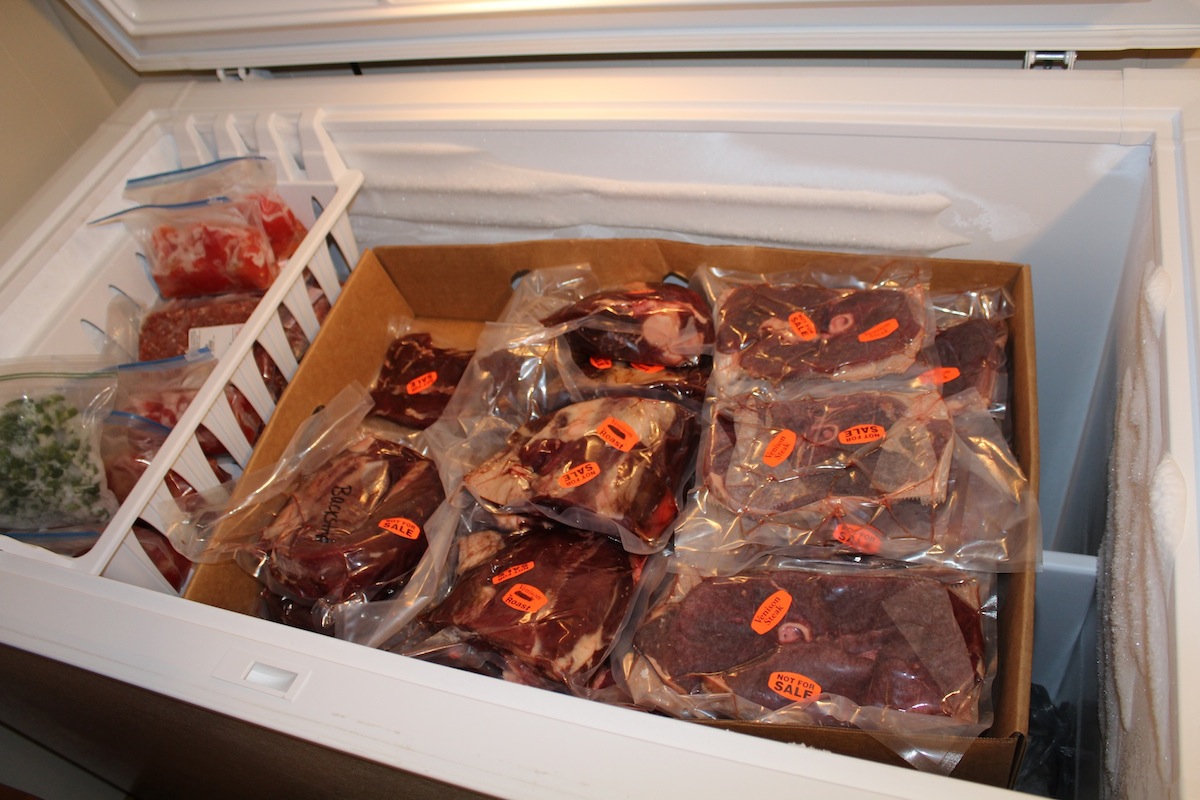

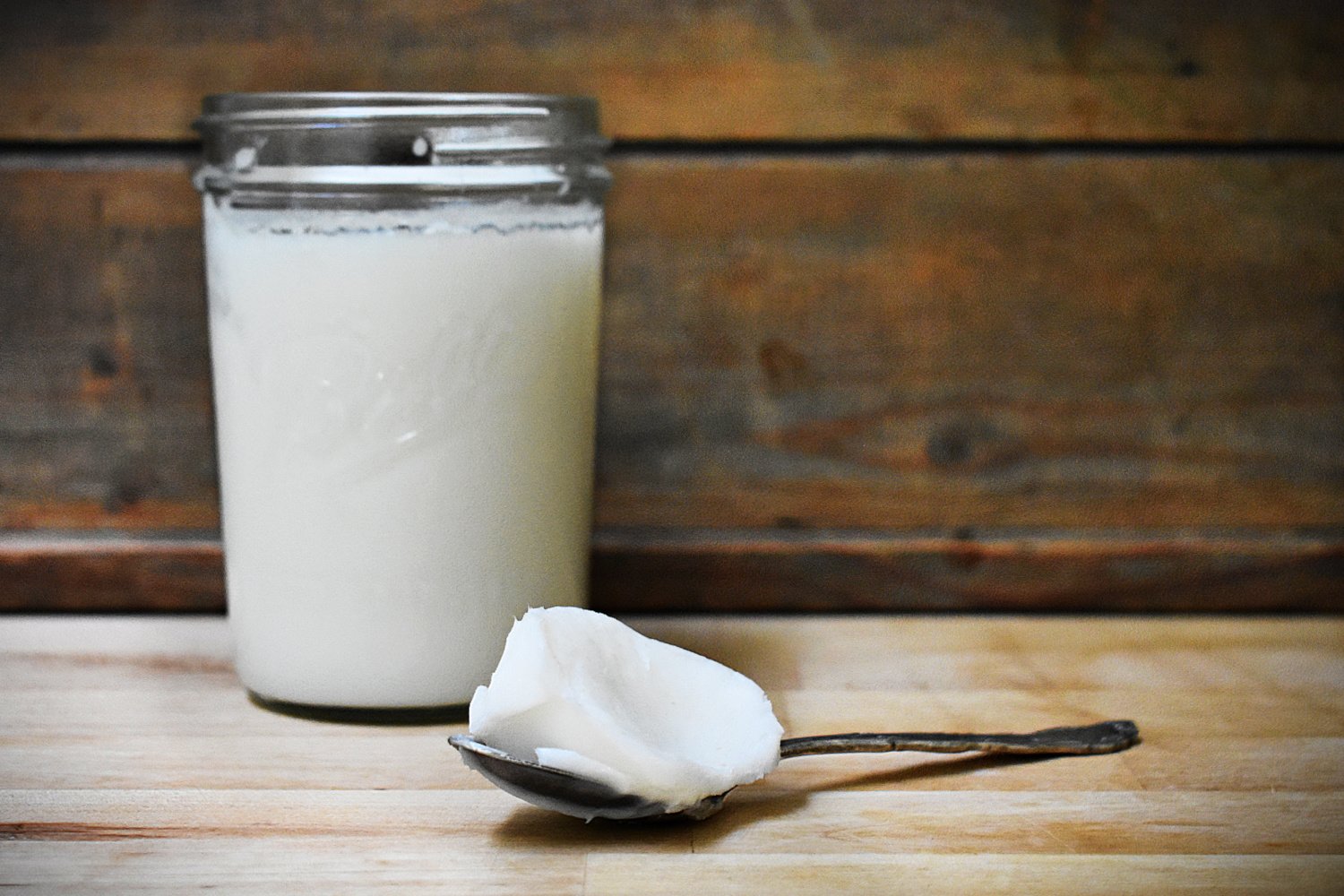

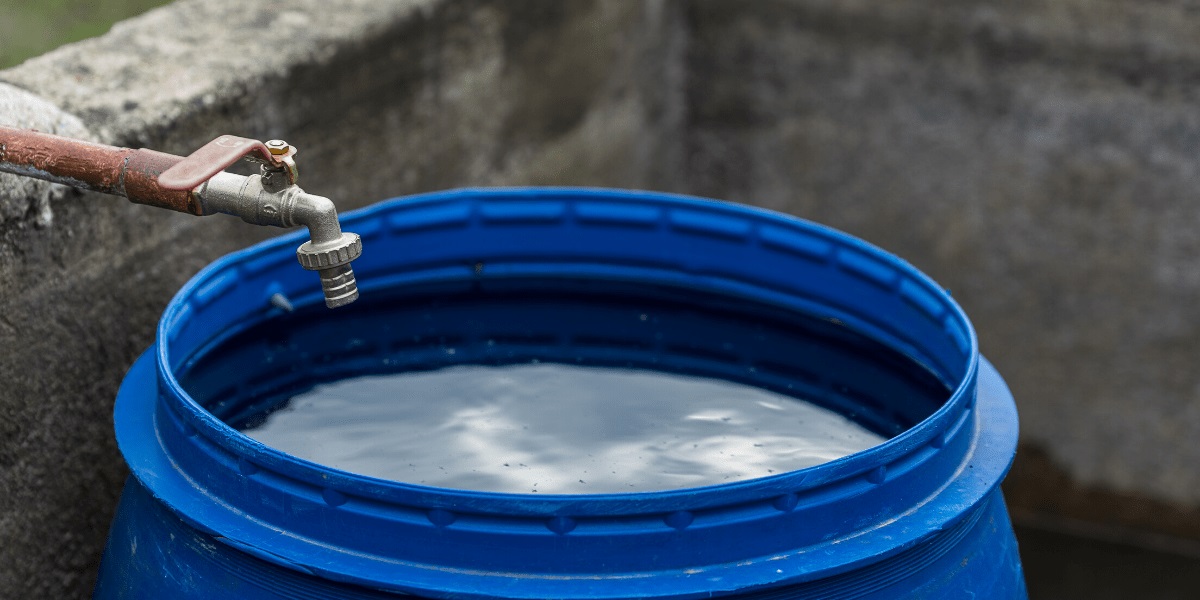


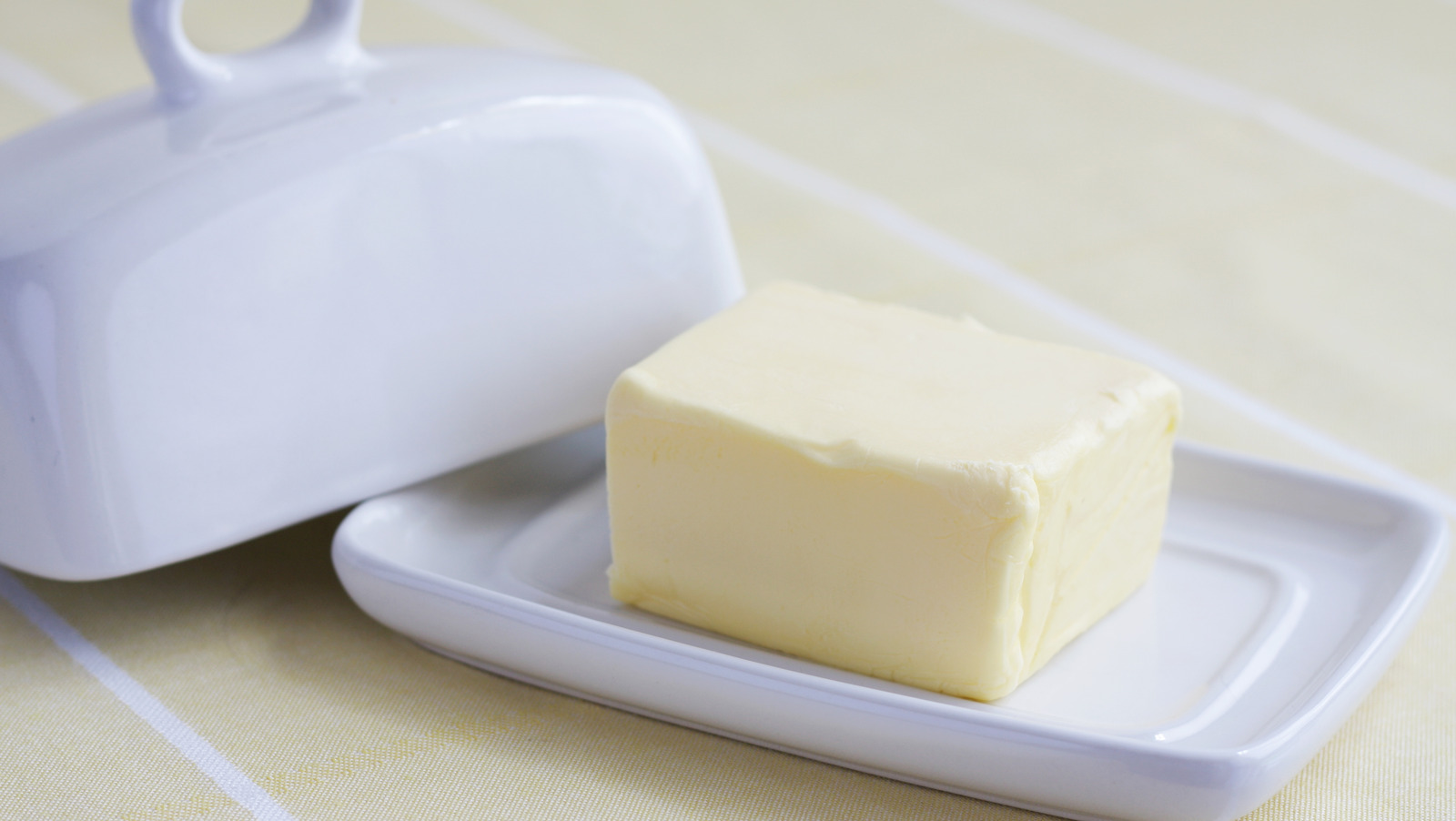

0 thoughts on “How To Store Cds Long-Term”